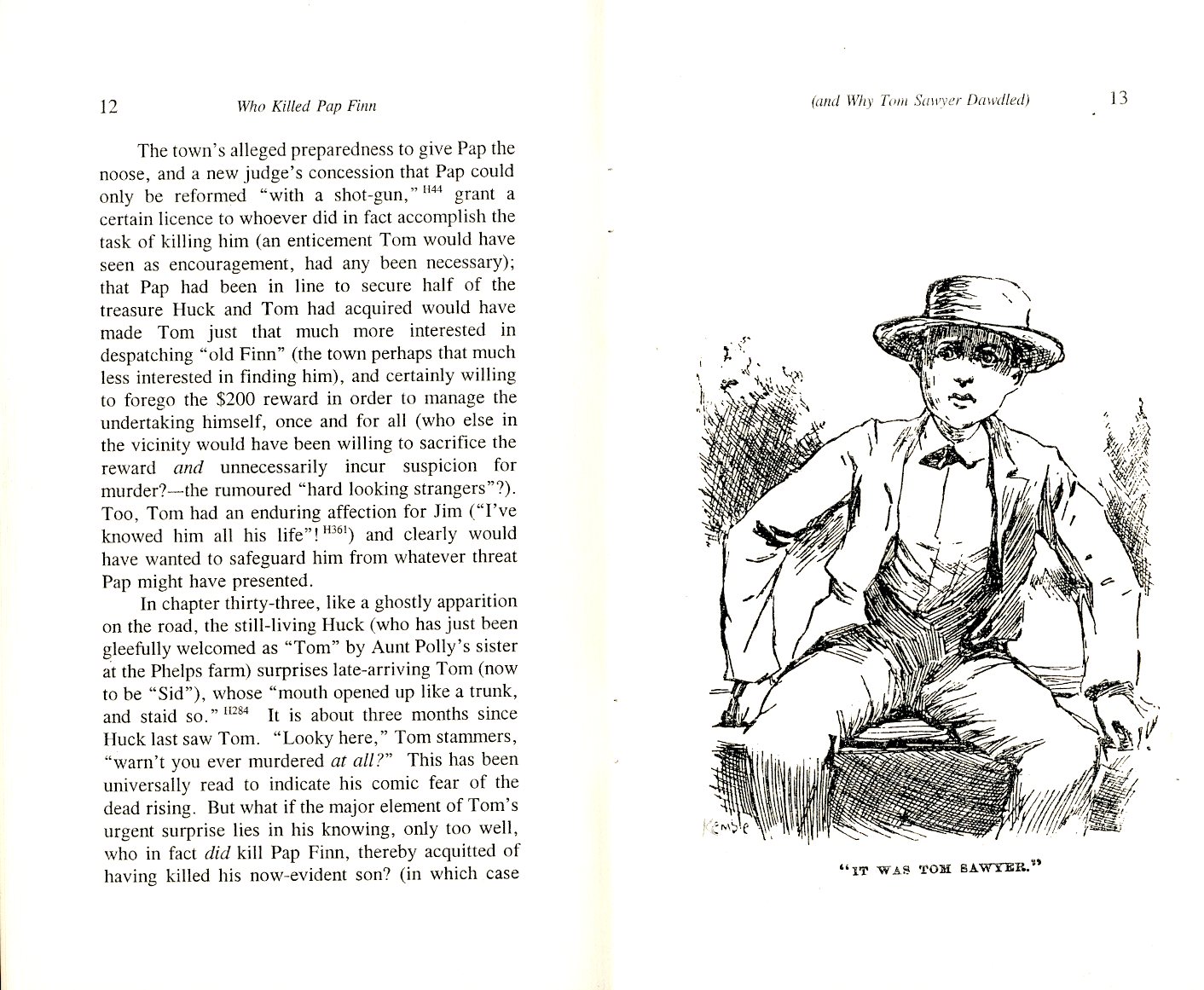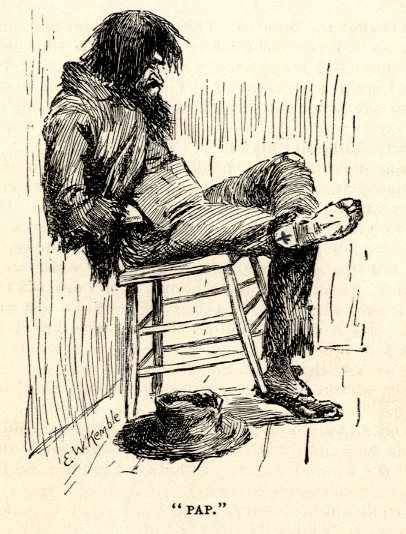
Who Killed Pap Finn (and Why Tom Sawyer Dawdled)

Who Killed Pap Finn (and Why Tom Sawyer Dawdled) by Michael A. Powell (2012 [August 5th]; 42 pages, $10.00; $15.00 [£10.00] international)
The bulk of criticism leveled against Huckleberry Finn during the last eighty years requires Tom's "evasion" to have been gratuitous. But such criticism is deprived of its basis, entirely deprived of it, if the possibility be allowed, as it must be, that Tom is the realising agent of the oath that closes Tom Sawyer and opens Huckleberry Finn: "to stand by one another, and never tell the gang's secrets, even if you're chopped all to flinders, and kill anybody and all his family that hurts one of the gang."The text of Huckleberry Finn does not require readers to believe Tom Sawyer killed Pap Finn; but it does require them to consider the extraordinarily well-funded possibility.
. . . . . . . . . .
. . . Tom's dawdling in anticipation of possible criminal prosecution for his "Gang's" revenge against the murderer of its beloved Huckleberry Finn, "Tom Sawyer's Comrade," is just that: the buying of time.
Until now, there has not been a single serious scholarly examination of the death of Pap Finn. The current critical presumption is that, following his and the town's river search for the body of "murdered" Huck Finn (Pap the town's number one suspect), and returning to the St. Petersburg dock empty-handed, Tom Sawyer simply sits around and twiddles his thumbs. That every other word in The Adventures of Tom Sawyer is "revenge"; that Adventures of Huckleberry Finn (Tom Sawyer's Comrade) begins the same way Tom Sawyer ends, promising death to anyone who brings harm to Tom Sawyer's Gang; and that, of the sixteen deaths in the two Adventures, Pap Finn's alone remains unexplained—all seem to have carried no weight in the annals of American literary criticism. Has Tom's easy theatrics with racially-governed suffering perhaps implicated, beyond bearing, the critical culture as a whole? Rather than see this as Mark Twain's intention, the critical academy has chosen to fault the author, to sidle away from the great American novel, distancing itself from Huck's jarring depiction of America's slave-holding past. The question has to be asked: Why has American literary criticism accorded such poor treatment to one of its greatest authors? One possibility, examined in detail here, is that it has not been a good reader.

pacrimu.org / pacrimu.org.uk
press@pacrimu.org / press@pacrimu.org.uk
Pacific Rim University Press * Post Office Box 3031 * University Station * Eugene, Oregon * U.S.A. 97403-0031